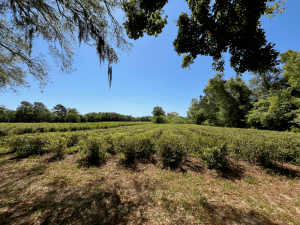Where to Live in Charleston SC (2025): Real Estate Costs, Neighborhoods, and Local Living Relocating…
The History of Tea in Summerville, SC: From Pinehurst Plantation to the Birthplace of Sweet Tea
The History of Tea in Summerville, SC: From Pinehurst Plantation to the Birthplace of Sweet Tea
Summerville, South Carolina isn’t just the Flowertown in the Pines — it’s also the unexpected birthplace of America’s tea industry and the iconic glass of Southern sweet tea. Long before tea became a staple in front porches across the South, it was being cultivated, studied, and perfected right here in the piney soils of Summerville.

Early Tea Roots in South Carolina
In fact, the history of tea in the Lowcountry dates all the way back to the late 1700s, when French botanist André Michaux introduced Camellia sinensis, the plant from which all tea is made. It took root at Middleton Place Plantation, just minutes from present-day Summerville. Yet despite this early start, large-scale commercial tea production wouldn’t take hold for another century.
Enter Dr. Charles Shepard and Pinehurst Tea Plantation
In 1888, a botanist and chemist named Dr. Charles Shepard changed everything. He established the Pinehurst Tea Plantation in Summerville and began scientifically experimenting with tea cultivation. Dr. Shepard traveled to Asia to study the best growing and processing methods, bringing that knowledge back to the Lowcountry.
By the early 1900s, Pinehurst was producing over 10,000 pounds of tea annually, making it one of the first and only commercially viable tea plantations in the United States. In 1904, his tea won first prize at the St. Louis World’s Fair, officially putting Summerville on the map as a national tea producer.
So… Is Summerville Really the Birthplace of Sweet Tea?
Yes — and here’s why.
Notably, in the late 1800s, tea and sugar were listed among rations at a Confederate reunion in Summerville, suggesting that sweetened iced tea was already being served. In 2016, Summerville embraced this legacy by setting a Guinness World Record for the largest glass of sweet tea — affectionately named “Mason.”
A Legacy That Lives On
After Dr. Shepard’s death in 1915, Pinehurst declined. However, in the 1960s, the Lipton Tea Company collected surviving plants from Pinehurst and used them to establish the Charleston Tea Garden on Wadmalaw Island. That same genetic stock still thrives today.
Here in Summerville, neighborhoods like Tea Farm and Shepard Park stand as living tributes to Dr. Shepard’s contributions. Many tea plants and camellias in the area can trace their origins back to Pinehurst.
🌱 From Pinehurst to Wadmalaw: The Journey of Summerville’s Tea Plants
After Dr. Charles Shepard’s passing in 1915, the Pinehurst Tea Plantation in Summerville was left untended, allowing the tea plants to grow wild for over four decades. In 1963, the Lipton Tea Company recognized the potential of these resilient plants and transplanted them to a 127-acre farm on Wadmalaw Island, just south of Charleston.
This move marked the beginning of a new chapter in American tea cultivation. The transplanted tea plants thrived on Wadmalaw Island, leading to the establishment of the Charleston Tea Garden. Today, this garden continues to produce tea from the original Pinehurst plants, preserving Dr. Shepard’s legacy and maintaining a living link between Summerville’s pioneering efforts and modern American tea production.Charleston Tea Garden
Explore the Sweet Tea Trail in Summerville
If you’re visiting Summerville or considering moving here, you can further explore:
- Sweet Tea Trail – A self-guided tour of historic homes, gardens, and local tea history.
- Shepard Park – A public park honoring Dr. Charles Shepard’s legacy.
- Charleston Tea Garden – On nearby Wadmalaw Island, continuing Dr. Shepard’s legacy of American-grown tea.
Final Thoughts
Summerville may be known for its azaleas and antebellum charm, but its influence on American tea culture is just as enduring. Thanks to visionaries like Dr. Charles Shepard, Summerville helped shape the Southern sweet tea tradition that’s loved across generations.
At The Local Ledger, we believe roots matter — whether it’s your home, your family, or your favorite cup of tea.
Additional Resources from The Local Ledger
- Mortgage Calculator – Estimate your monthly payment in Summerville.
- Loan Programs – Explore FHA, VA, USDA, and conventional options.
- FAQ – Answers to your home loan and real estate questions.
- Summerville Events – May 2025 – Discover what’s happening this season.
- Schools in Summerville – Learn about DD2, DD4, and local education.

